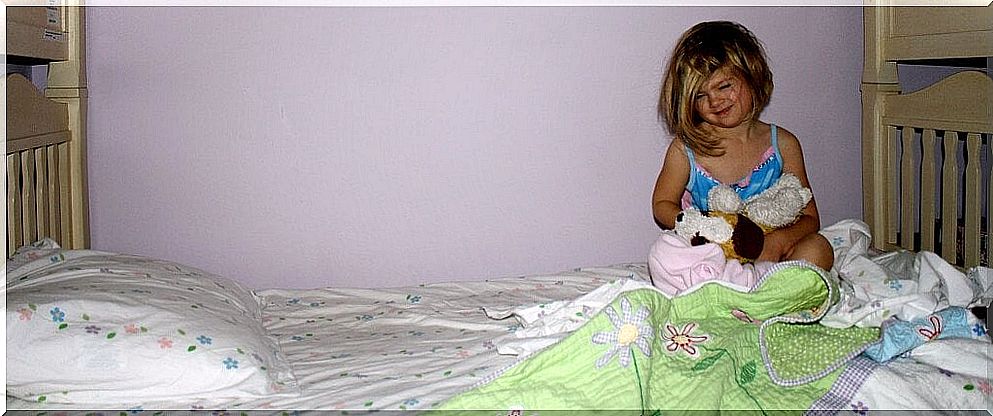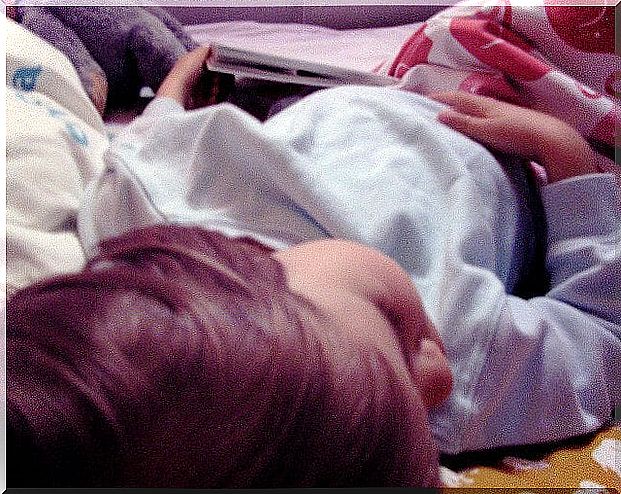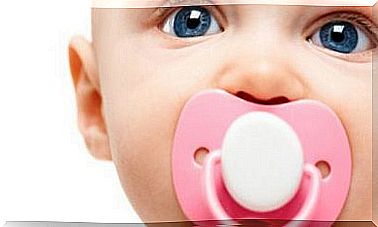9 Tips To Help Your Child Not Wet The Bed

Helping your child not wet the bed is something you should pay close attention to.
The first thing to do is to consult a pediatrician or urologist to rule out health problems. Children often wet the bed because they haven’t established their habits and because the bladder hasn’t fully developed.
Bedwetting is a problem that families and doctors should address without feelings of guilt or shame.
-Venâncio Martínez, president of the Spanish Society of Outpatient Pediatrics and First Aid –
Factors that must be ruled out before any treatment
- Sleep apnea. If your little one snores or has other signs of sleep apnea, it is advisable to have a complete medical examination.
- Urinary tract infections. Signs of a urinary tract infection can be detected with a urine sample.
- Diabetes. Childhood diabetes is a very delicate condition that can also cause a child to wet the bed. Difficulty processing glucose in the body alters many of the body’s normal functions.
9 tips to help your child not wet the bed
- Establish schedules for fluid intake. Increase the amount of fluids children consume throughout the day and reduce intake at night.
- In the daily routine, schedule bathroom breaks. During all the activities that your children do,
take a short break so they can go to the bathroom.
It is advisable to do this every two or three hours and before going to sleep.
- Eliminate inappropriate foods from your child’s diet. Prevent your children from consuming inappropriate foods or drinks at night. Caffeine-containing beverages such as chocolate or cocoa flavored milks are examples. Also reduce the amount of citrus and artificially flavored drinks. These substances can irritate children’s bladders.
- Make sure your kids stay hydrated throughout the day. So they won’t be so thirsty when they get home from school, give them fluids during the day. Thus, liquid consumption will be more balanced.

- Rule out constipation. The rectum is located behind the bladder, so constipation can trigger a bladder problem, especially at night. Again, it is important to see a doctor so that such a condition does not exist.
- Avoid resorting to punishments. Getting angry at your child because he wets the bed doesn’t make learning or progressing easier. A process as complex as helping your child not wet the bed should not cause conflicts in the family.
At a psychological level…
- Create an incentive framework. In addition to the physical component, you must find solutions for the emotional side that is affected when your children wet the bed. On a calendar or diagram, put stars or smiley faces for each day your child stays dry while he sleeps.
- Provide support and motivation. To help your child keep from wetting the bed, you must recognize every small advance. Reward progress and make your children feel comfortable and secure.
- Avoid getting angry. Getting in a bad mood and blaming your kids for wetting the bed will only make things worse. For them, the feeling of feeling wet is already uncomfortable and shameful (especially for children over five years old). So, they need to feel supported and comforted.

Show your child that he is not alone in the process and that it is acceptable for his body to function differently.
Some temporary measures you may also want to consider include: buying a waterproof mattress that won’t be affected when your children wet the bed, more accurate feeding routines, good sleep habits, and regular visits to the bathroom.
There are also medications to control this situation. But it is not recommended to use them unless the pediatrician considers it strictly necessary to avoid future health complications.
Although you are looking for a quick fix, it is essential to keep in mind that this is a learning process that you should undertake with your children.
Educating the organism is another lesson you can live with as a family. Do this with love and dedication to get the best results for you and your little ones.









